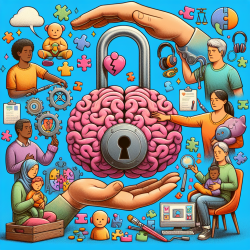Key Findings and Practical Applications
The study identified five main themes affecting caregivers: barriers to community engagement, impact on close relationships, negative impact on mental health and identity, financial hardship, and identified support needs. Here’s how you can address these issues:
1. Enhance Community Engagement
- Organize community events that include educational sessions about neurodiversity to reduce stigma and promote understanding.
- Create support groups where caregivers can share experiences and strategies.
2. Strengthen Close Relationships
- Encourage caregivers to maintain their social networks by offering flexible therapy schedules.
- Provide couples counseling sessions to help caregivers manage relationship stress.
3. Support Mental Health and Identity
- Offer mental health support through counseling and stress management workshops.
- Encourage caregivers to pursue their personal goals and hobbies to maintain a sense of identity.
4. Alleviate Financial Hardship
- Guide caregivers in navigating funding options like the National Disability Insurance Scheme (NDIS).
- Offer financial planning workshops to help them manage therapy and other related expenses.
5. Address Specific Support Needs
- Provide training sessions on managing challenging behaviors and understanding neurodiverse conditions.
- Ensure caregivers have access to respite care to give them much-needed breaks.
Encouraging Further Research
While the study provides a comprehensive overview, ongoing research is crucial for continuously improving support strategies. Encourage caregivers and fellow practitioners to engage in research activities or stay updated through webinars, conferences, and publications.
To read the original research paper, please follow this link: The Well-being and Support Needs of Australian Caregivers of Neurodiverse Children.










